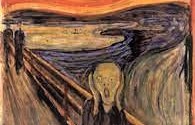It’s Not Just About the Intellect
Back when I was writing about medicine and health for The Des Moines Register, I was surprised to learn that people in scientific fields often don’t act rationally.
I recall seeing surveys, for instance, showing that a majority of health care workers – doctors, nurses, therapists, etc. – ignore the evidence when it comes to over-the-counter drugs. Namely, a high proportion of them routinely bought brand-named pain killers – like Tylenol instead of generic acetaminophen – which usually carry the name of a retailer. That was the case even though labels show each has exactly the same, and the same amount of, active ingredients.
Other studies showed that many doctors and nurses who work in hospitals, even those who work in surgery, fail to wash their hands often or adequately enough.
I shouldn’t have been surprised, of course, any more than I am surprised that many who profess a religion, including religious “professionals,” don’t follow the religion’s teachings.
Don’t Always Line Up
Fact is, human feeling, hunches and presumptions don’t always line up with our intellectual beliefs. And I’ve mentioned often in these blogs that it’s not enough to seek answers to our intellectual questions so we can believe. The letter of St. James in the New Testament – one of the readings at recent Catholic weekend liturgies – makes that clear. “So faith by itself, if it has no (good) works, is dead,” he writes.
I believe that people searching for faith should, therefore, not only study and pray but act; that is, see God in others, especially the poor, by helping them. Putting whatever faith we have into practice actually bolsters our faith.
In a recent issue of The Mirror, the newspaper of the Diocese of Des Moines, in an article entitled “Can We Prove God Exists?” syndicated columnist and theologian Ron Rolheiser writes that people whose search for faith has not yet yielded results should not give up.
A Challenge to be Honest and Generous
The challenge is not so much intellectual as moral, Rolheiser writes, “a challenge to be honest and generous.
“Skepticism and agnosticism, even atheism, are not a problem as long as one is honest, non-rationalizing, non-lying, ready to efface oneself before reality as it appears, and generous in giving his or her life away in service. If these conditions are met, God, the author and source of all reality, eventually becomes sufficiently real, even to those who need physical proof.
“…God is neither angered nor threatened by an honest agnosticism,” he writes.
“Faith is never certainty. Neither is it a sure feeling that God exists. Conversely, unbelief is not to be confused with the absence of the felt assurance that God exists. For everyone, there will be dark nights of the soul, silences of God, cold lonely seasons, skeptical times when God’s reality cannot be consciously grasped or recognized.
God Often Seems Dead
“The history of faith, as witnessed by the life of Jesus and the lives of the saints, shows us that God often seems dead and, at those times, the reality of the empirical world can so overpower us that nothing seems real except what we can see and feel right now, not least our own pain. Whenever this happens … we need to become honest agnostics who use our goodness and God-given strengths to help carry others across the burdensome rivers of life.
“God does not ask us to have a faith that is certain, but a service that is generous and sustained. We have the assurance that should we faithfully help carry others, we will one day find ourselves before the reality of God ….”
So can we prove that God exists? In theory, maybe not. If so, we wouldn’t need faith. But in the way we live our lives, definitely.







